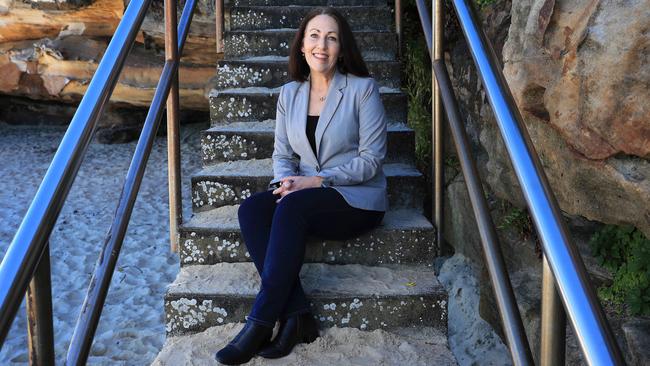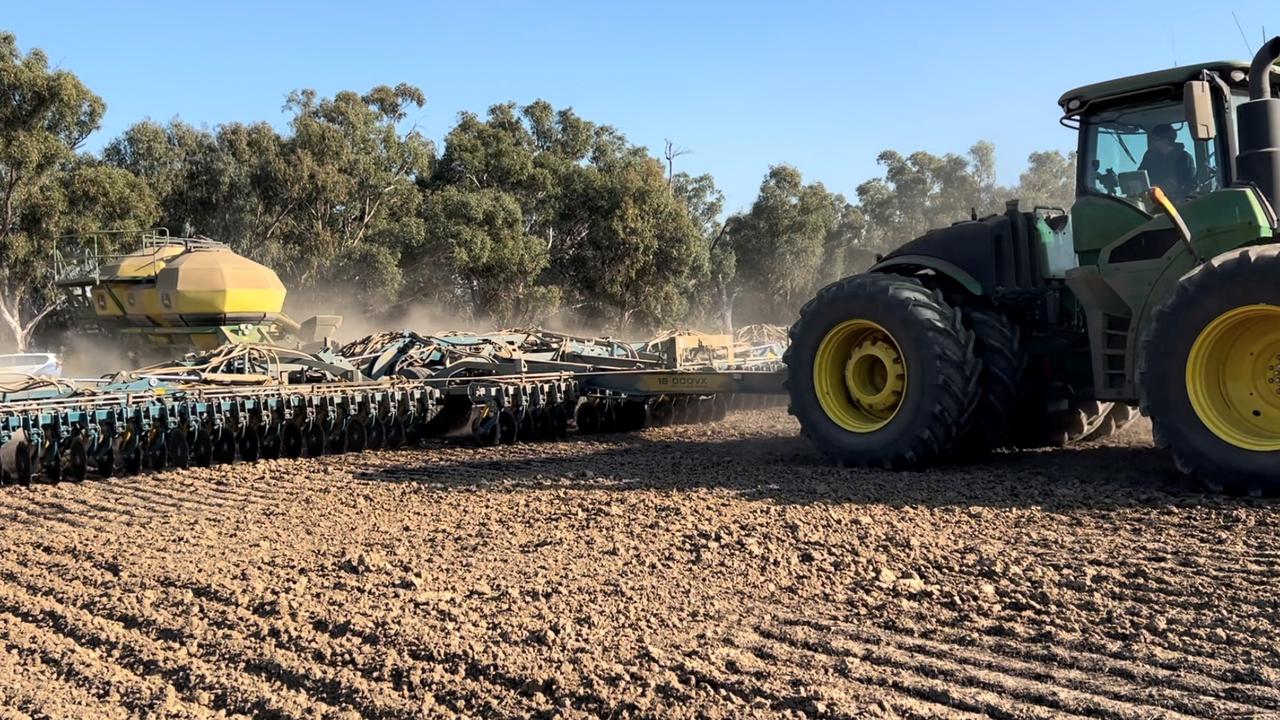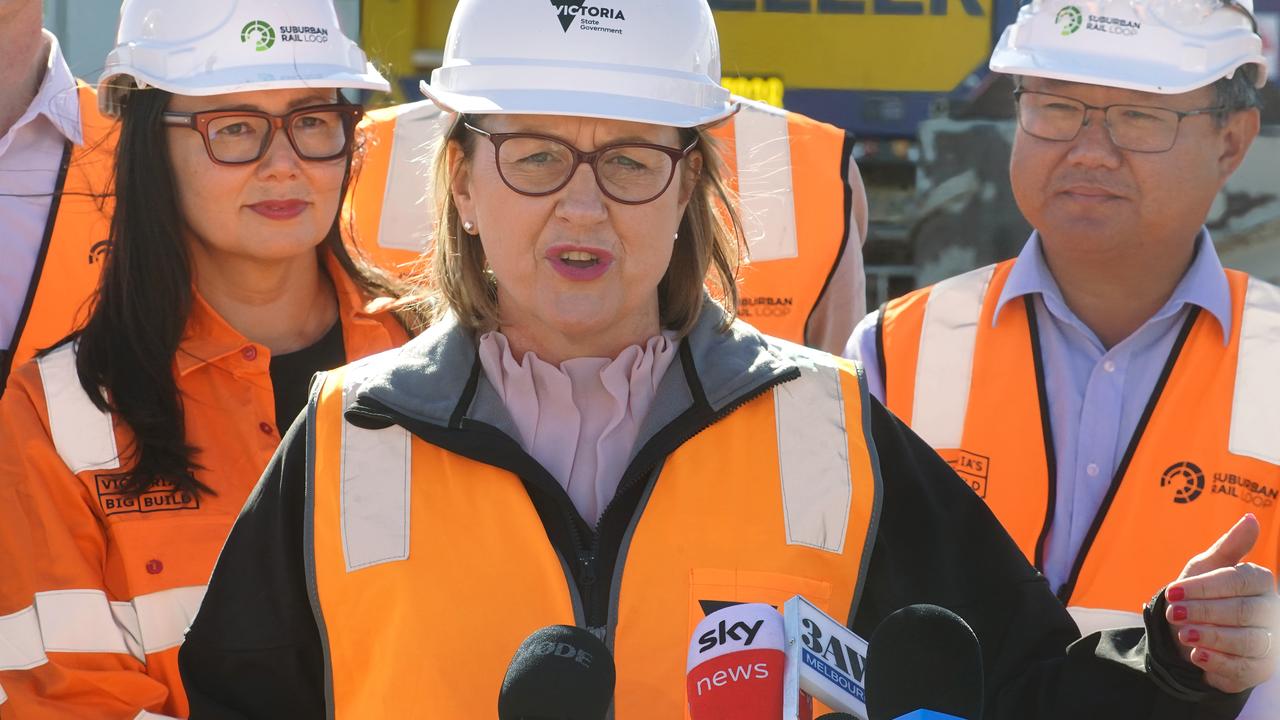AstraZeneca Australia chief Liz Chatwin battles for vaccine acceptance on the front line of the pandemic war

Her view lines up with the National Cabinet’s decision on Friday.
As the Delta strain threatens lives and livelihoods while protesters threaten further marches for freedom, Ms Chatwin spoke exclusively to The Weekend Australian about the desperate battle to roll out the jab and to restore the global giant’s reputation, which has been besmirched by the confusion over what is and isn’t really safe.
“Here in Australia we have been a bit bemused, I must say, by a lot of rhetoric around the risks of the AstraZeneca virus,” says Chatwin.
“We know from millions of people, real world evidence, that the vaccine is a really effective vaccine and it’s a safe vaccine. The incidence of rare clotting events, they are extremely rare.”
One billion doses of the Oxford AstraZeneca vaccine have been produced for the world, at no profit to the company.
Fifty million of doses are being manufactured in Melbourne by CSL and so far 12.4 million have been delivered to the government. Yet only 6.3 million doses have vaccinated Australians.
Some 18 months ago, AstraZeneca was not even in the vaccine business.
And yet last year, AstraZeneca became a political punching bag in Europe as vaccine nationalism took hold. This year, with Australia’s complacency over its Pyrrhic victory in suppressing the virus, it again been ostracised in an extraordinary act of self-harm by the nation. On Friday, the developer of the vaccine warned that lives could be lost in Australia from the confusion.
“When the Oxford team came to talk to us back in April last year, they asked one question and that was: can you help? And it took us no time to decide: yes, absolutely,” says Chatwin. “And now with one billion doses already distributed to 170 countries, tens of thousands of lives saved, hundreds of thousands of hospitalisations prevented, families that are together, this is a huge achievement. We are extremely proud of it. And we’ve taken the ups with the downs.”
And downs there have been.
By locking itself off from the world, Australia created effectively a Covid-free zone. So when regulators weighed up the infinitesimally small risk of dying from a blood clot from the vaccine, it was comparable to the then infinitesimal risk of dying from Covid, especially for younger Australians. Sadly that message of low, low risk lost all perspective in the public arena.
Liz Chatwin is a 16-year veteran at AstraZeneca with a science and business background and has worked in Britain, China and South Korea. In a few short months AstraZeneca has had to adjust to becoming a household name, in part for all the wrong reasons.
Asked if it was fair, she says: “It’s not for me to speculate on what is fair or not fair. I’ll be honest with you, I’ve had some tough moments with our staff who have wanted to know what we have been doing about this. I’ve had some stories of our staff walking into GP surgeries and being asked to take off their AstraZeneca badge because the GP has said ‘I don’t want my patients knowing that they are talking to you’. On the other hand I’ve got people who are extremely proud, who have family members living in India, living in The Philippines, who call them every day to say ‘please tell your company we are so grateful for what you have done’.”
On 17 June ATAGI’s advice that the AstraZeneca vaccine was only preferred for the over-60s was a devastating blow to the vaccine rollout, with hesitancy rising to 30 per cent of the population.
Suddenly, the vaccine that had been a saviour to so many overseas, the one the Prime Minister described as the workhorse vaccine, was in Australia viewed with suspicion. In late June when Scott Morrison tried to encourage younger Australians to go ahead with AstraZeneca, notwithstanding the ATAGI advice, he was shot down by Queensland’s chief health officer. “Wouldn’t it be terrible that our first 18-year-old in Queensland who dies related to this pandemic, died because of the vaccine? We are not in a position that I need to ask young, fit, healthy people to put their health on the line getting a vaccine that could potentially, significantly harm them,” she said.
Little more than a month later, Australia is in a different position. Risks have changed and ATAGI has changed its advice.
Chatwin is leading from the front. “My 19-year old son had his first dose of AstraZeneca yesterday, and one of his friends. I know from some of the data we have seen that younger people don’t know when they are going to get their vaccine. They are keen to get out of this lockdown, they want to get life back to normal, they want to see their friends, they want to socialise, and there are increasing numbers of younger people coming forward.”
Chatwin stresses the message that the second dose provides the fullest protection. Real evidence from Britain shows the Oxford AstraZeneca vaccine is more than 92 per cent effective at preventing hospitalisation from the Delta variant. Importantly, the second dose has no increased risk for the patient.
“The rates of clotting with the second dose are just what you would see in a normal non-vaccinated population. And a very rare incidence of risk with the first dose. And what a lot of people don’t know is that Covid itself increases the risk of clotting 8-10 times more than what you would see with any vaccine risk.”
In weighing up the risks in April and June, it seems fair to ask if ATAGI factored in the risk of the virus breaking through Fortress Australia into an unvaccinated community. “I wouldn’t want to speculate on what ATAGI did or didn’t do,” says Chatwin. “But regulators around the world have been really clear that the benefits of the Oxford AstraZeneca vaccine fully outweigh the risk and that has been communicated also by the TGA in Australia.”
“ATAGI said for the under-60s, Pfizer is the preferred vaccine, but it also reinforced that the benefits outweighed the risks for vaccination. Now we see an adjustment to that advice with the higher community transmission rates and it is really important that the media, that experts, that people that can influence the community really encourage people that the benefits of the vaccines far outweigh the risks now. We know the Oxford AstraZeneca is a really effective vaccine. It’s clear.”
As reported this week in the Australian, vaccine rates are at last rising and hesitancy falling. The question remains why AstraZeneca has attracted so much negative media when it is the staple vaccine for the world, and unlike any other big pharma, it has committed to delivering all its vaccines at cost. “I don’t think the story of the fact that we are doing it at no profit is well told,” Chatwin says. “I’m really hoping that now this story can come out. As a company, that is what we stood for all along. Our whole goal was to save lives and to do it at cost, at no profit. Sometimes this message has been not well told, even though we have been saying it. I’ve been a bit bemused around the level of focus on the clotting risk, but human beings find it difficult to evaluate risk/benefit themselves.”
At his results this week, global CEO Pascal Soriot addressed the question of how long AstraZeneca would continue to make vaccines without profit – one billion doses so far. AstraZeneca will continue to deliver what has been ordered by the world on the same conditions. “There is a lot left to deliver. At some point in the future we will of course move to an affordable price. We cannot be a non-profit forever, but we will never intend to make large profits. We will definitely have affordable prices. We are still pricing at different levels depending on the wealth of the various countries, but for now we are absolutely focused on delivering the orders that were placed a few months ago.”
In ‘‘Free Britain’’ Covid rates are now falling and the Oxford AstraZeneca vaccine is cheered as a national achievement. “You would have seen Sarah Gilbert, the chief researcher from Oxford with a standing ovation at Wimbledon, which warmed my heart,” says Chatwin. “There are 22 million people that have been fully vaccinated with the Oxford AstraZeneca vaccine over there, which is almost the whole population of Australia. That has been done very effectively and very safely.”
On Friday in an interview with the ABC, Gilbert said the confused messaging on vaccines in Australia could be fatal. “If people have received the wrong message and are just too worried about going to get the vaccine now, that could really have very long-term effects and we could see a lot of lives lost because of it.”
Liz Chatwin says the company remains committed to the vaccine and is investing in more research with Oxford: a booster based on the South African Beta variant is already in clinical trials; mixing mRNA vaccines with endo-virals like AstraZeneca to see if it gives longer immunity; the efficacy of a third booster; and on what is the possible cause of the clotting risk.
One smouldering issue for Liz Chatwin is vaccine passports, with recent media reports that travellers with the Australian AstraZeneca vaccine may be turned away from Europe.
In the rush, Chatwin explains, the vaccine was launched without a brand name, simply as ‘‘Covid-19 vaccine AstraZeneca’’. Europe has rebranded the vaccine manufactured in Europe as Vaxzevria.
While the AstraZeneca vaccine is the same product and has the same process worldwide, it is manufactured at different sites, from Britain to Australia or India. Approval of both product and manufacturing site is required by Europe. “The European Commission has said the AstraZeneca vaccine or the vaccine formerly Covid-19 vaccine AstraZeneca is approved in Europe. So member states please recognise. They have also said we recognise vaccines that are specifically registered by the World Health Organisation. So the Australian vaccine checks both boxes.”
Liz Chatwin admits there is still confusion at some borders ahead of the global harmonisation of the brand. “I’ve heard myself an example of one person who said that one country wouldn’t recognise their vaccination certificate.
“What we are trying to do now is make doubly sure that all member states are acting in the same way according to the EU Commission guidance.”
For most of us, international vaccine passports will not be required until well into next year.
“The only way out of this lockdown is to get our vaccination rates higher,” Chatwin says emphatically.
“My hope for Australia is that we have a more optimistic outlook for 2022, that we have higher rates of vaccination, that people like me and others who have got family overseas have a date that they can see them.”



At least 70 per cent of the population of Australia need to be vaccinated for the nation to come out of lockdown. That is the call to arms from the frontline of the pandemic war, AstraZeneca’s managing director for Australia and New Zealand, Liz Chatwin.